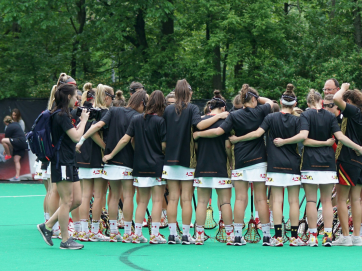Social work education is a national academic scandal. So concludes a study released today by the National Association of Scholars.
The study, which reviewed social work education programs at ten major public universities, aimed at assessing whether or not they conformed to the academic ideals of open inquiry, partisan disengagement, and intellectual pluralism. Instead, it found the descriptions of social work education programs to be, at every level, chock full of ideological boilerplate and statements of political commitment.
For example, all ten programs reviewed accepted accreditation from a body -- the Council on Social Work Education (CSWE) -- that expects programs "to integrate social and economic justice content grounded in an understanding of distributive justice, human and civil rights, and the global interconnections of oppression"; nine of the ten programs require students to conform to the Code of Ethics of the National Association of Social Workers (NASW), which enjoins social workers, using similar left/liberal rhetoric to, among other things, "engage in social and political action" and "advocate for changes in policy and legislation to improve social conditions to meet basic human needs and promote social justice."
The mission statements of the programs reviewed are replete with similar ideologically fraught statements ranging from an avowal of commitments to the "empowerment of oppressed people" to an emphasis on understanding "the forms and mechanisms of oppression and discrimination that lead to poverty, racism, sexism, heterosexism, classism, ableism, and ageism" as a means of advocacy "for social and economic justice." These thematic preoccupations receive further reinforcement in several official student handbooks.
Course descriptions also contain highly politicized content or ideologically slanted premises. For example, "Organizing for Social and Political Action" at the University of Michigan is described as preparing students to use "political advocacy as a form of mobilization" with special emphasis "placed on organizing communities of color, women, LGBT populations, and underrepresented groups in U.S. society," while "Muslim Families" at the University of Washington assumes the existence and discusses "the effect and interaction of cultural imperialism on Muslim communities, both in the United States and abroad."
Commenting on these findings, NAS president Stephen H. Balch remarked, "It is totally unacceptable for an academic discipline to load mission statements with question-begging concepts that preempt the discussion of unsettled questions, prepare students to become activists for particular causes, or require that students swear loyalty to creedal formulations in order to graduate. Social work education does all these things."
"What we've uncovered," observed Dr. Balch, "reveals a field that has supplanted open minded inquiry with left-wing, morally relativist, and occasionally paranoid dogma. There is certainly room for vigorous debate about the extent to which responsibility for life's problems derives from individual choices as opposed to social structures, discrimination, or even, as the CSWE would have it, 'the global interconnections of oppression.' But there is little in the doctrinaire, activist stance of contemporary social work education to encourage such colloquy. Instead, academic freedom has been replaced by ideological lockstep.
The rampant politicization of social work education," Balch continued, "represents a two-fold challenge. First, it is a challenge to American higher education at large. Defenders of the American university claim that the seriousness of the problem of political correctness has been greatly exaggerated by critics. There is, however, nothing subtle about political correctness in social work. It is the Jolt Cola of PC. Unless America's higher education leadership insists that social work education conform to the ideals of academic freedom and political neutrality that academe claims to profess, its own intellectual integrity is open to fundamental question. We call upon the leadership of American higher education to exercise this responsibility.
The second challenge is to the First Amendment and the obligation of all public institutions to remain faithful to freedom of speech and conscience. In public universities and colleges, the ideological tests imposed by social work education, reaching to issues such as abortion and sexual morality, penalize students who have traditional religious and moral views. Failure to abolish these tests exposes such institutions to legal action. Likewise, government agencies whose licensing requirements make CSWE accreditation a condition for social work employment are similarly exposed. We therefore call on public universities and colleges, as well as federal, state and local agencies, to rid themselves of these tests and requirements.
"As a first step," Balch concluded, "the National Association of Scholars is sending letters to the forty nine state agencies that license social workers and require CSWE accredited degrees. We will also renew our efforts to get the U.S. Department of Health and Human Resources to strip CSWE of its gatekeeper functions in hiring social workers for the Public Health Commissioned Corps. Should no action be taken by these agencies, we will follow up with additional measures."












